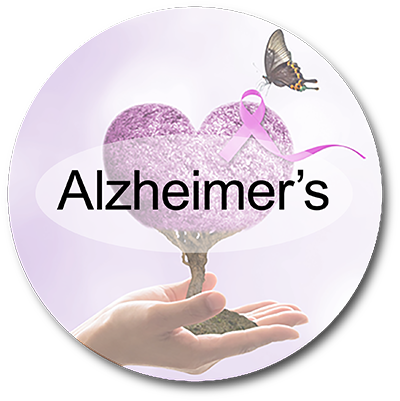Thoughts and Observations on Sundowning and Sunrising in Alzheimer’s

As I have progressed in my holistic healing approach to living since learning Reiki to support my mother through her journey with Alzheimer’s, loving and sensitive observations have come from working with these beautiful people and their care partners. In response to a recent group discussion around the challenges of sundowning, this article wrote itself from heart and experiences. May it find a place in your understanding of and working with your loved one:
There is a sense of disconnection from self, physical space, and time in Alzheimer’s
Sleep and light can emphasize this ongoing process.
A person rising from sleep may be disoriented, not know where they are or feel not themselves as much as one who detects the waning light of the dying day and feels their energy subsiding for the evening. These effects are present in all of us to some degree according to our own circadian rhythms. In Alzheimer’s, this disorientation can be disturbing and even very agitating for a loved one who is already aware of and resisting the loss of themselves – as is often the case.
There is a spiritual piece to sunrising and sundowning. This loss of connection and self is related to our inner grounding mechanism. The one that orients us toward the physicality of earth and the bodily connection to the planet and life. Alzheimer’s is a disease of disconnection. Earth is our source of reconnection. Changing light is the vehicle of transition and the threshold to grounding.
In the morning it is the search to find themselves and orient themselves in the day as to who, when, and where they are and where they are going in the day (their purpose, usefulness, and sense being alive.) At the end of the day, it is searching for a fading connection before the unconsciousness of sleep (represented by the oncoming darkness) robs them of the last vestiges of what they have gleaned for themselves in the day. It may be the loss of a somatically remembered routine or level of activity that is now missing in Alzheimer’s. A sense of purpose and self that is slipping away with the light. Sleep can become the frightening enemy of efforts at self-retention as a person’s sense of self is slipping away in Alzheimer’s.
Be patient and kind with your loved one as they try to orient themselves in the morning. Bring them back slowly and gently into the day and help them re-member themselves in the light. Provide orientation, purpose, and reconnection with the body (grounding) through gentle hygiene and breaking the fast of night. Celebrate the light by addressing the day. Talk about moving from sleep into waking day.
During the day, physical factors such as rest, nutrition, exercise, hydration, and light are all important.
At the end of the day, use stones to help create a physically grounded environment. Holding a favorite stone or putting plants and stones near a loved one can help somatically bring someone into the present and anchor them. Clear the energies of the day with a quick inner review/release for yourself and highlight a success of the day with your loved one.
Make a special routine (ritual) to welcome the waning light and the cycle of day into night. This can be as simple as a cup of tea, a time of special music, and some conscious acknowledgment around the turning of the light. Honor the night as a time of rest and renewal. Welcome its presence. Be reassured about the continuation of the self, soul, and spirit through the time of rest and renewal in yourself so you can talk reassuringly and welcomingly about the light of day and the coming restful dark.
If appropriate, before going to bed for the day, try talking about being with your loved one through the night and in the morning. That we are all sleeping and enjoying the closeness of the night together. Humans hold ages-old fears of the dark that need to be over-written with the reality of the continuity of the cycles of life through sleep and unconsciousness.
Most importantly, try to take your own natural down time and wind down with your loved one. Often as the light fades we wind up into end of day routines without even thinking about it. Consciously and deliberately slow down with your loved one and celebrate the turning of the day. Mark the time of transition. What does it matter if dinner is 15 minutes later if you stopped to honor yourselves and the day for a few extra minutes? Move with the rhythms of earth, sun, and moon in your own life and share the treasures of the cycles of light and dark, sleep and wake, rest and activity, with your loved one.
To learn more about Reiki and Alzheimer’s visit me here:
